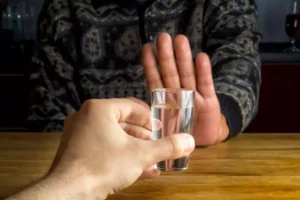Learn About Alcohol Addiction

Medications are provided to ease the symptoms, and physicians monitor people’s vital signs and overall health. Following detox, a physician might also prescribe a medication to discourage alcohol use. Antabuse, for example, makes people ill when they consume even the tiniest amount of alcohol.
Application Process
During the detox period is when many people experience alcohol withdrawal symptoms. Since some alcohol withdrawal symptoms can be life-threatening, it’s important to speak with your healthcare provider before you stop drinking. Long-term, heavy alcohol abusers may do best by detoxing under medical supervision.
- Hypnosis can be described as a meditative state or “trance” in which your attention is focused on inner experiences rather than outer ones.
- Aug. 21, 2023 – A type of gene therapy that reboots the brain’s reward system could curb drinking in those with severe alcohol use disorder.
- For more information on behavioral treatments and medications for SUDs, visit NIDA’s Drug Facts and Treatment webpages.
- Twelve-step programs — Alcoholics Anonymous (AA), in particular — and 28-day in-patient rehabilitation are the most commonly known treatments for alcohol problems, according to the NIAAA.
About the Acting NIMH Director
Therapy is useful to help teach someone how to manage the stress of recovery and the skills needed to prevent a relapse. Also, a healthy diet can help undo damage alcohol may have done to the person’s health, like weight gain or loss. As an addiction tends to get can alcoholism be cured worse over time, it’s important to look for early warning signs. If identified and treated early, someone with an alcohol addiction may be able to avoid major consequences of the disease. Caring for a person who has problems with alcohol can be very stressful.

Take Our Substance Abuse Self-Assessment
Some people drink heavily all day, while others binge drink and then stay sober for a while. Alcohol addiction, also known as alcoholism, is a disease that affects people of all walks of life. Experts have tried to pinpoint factors like genetics, sex, race, or socioeconomics that may predispose someone to alcohol addiction. Psychological, genetic, and behavioral factors can all contribute to having the disease. Understanding the available treatment options—from behavioral therapies and medications to mutual-support groups—is the first step. The important thing is to remain engaged in whatever method you choose.
E-Health Alcohol Treatment Tools*
Rehab, on the other hand, is usually a month-long treatment program in a facility that completely removes you from situations and circumstances that perpetuate substance abuse. Over time, alcoholism (and AUD) can cause a number of complications, but this chronic disease https://ecosoberhouse.com/ is treatable. Still, it can take five or more years before the risk of relapse drops below 15% — the level of risk that an average person has of developing a SUD in their lifetime. Ultimately, sobriety is the responsibility of the person who has the alcohol addiction.

Why do different people need different options?
- Comprehensive treatment gives individuals the needed tools to stay sober for the long-term and enjoy productive lives despite the disorder.
- Unhealthy alcohol use includes any alcohol use that puts your health or safety at risk or causes other alcohol-related problems.
- Alcohol use disorder (sometimes called alcoholism) is a common medical condition.
- Following the initial treatment phase, alcoholics are encouraged to continue their participation in therapy and support groups.
Treatment for Alcohol Addiction
How do I take care of myself?

